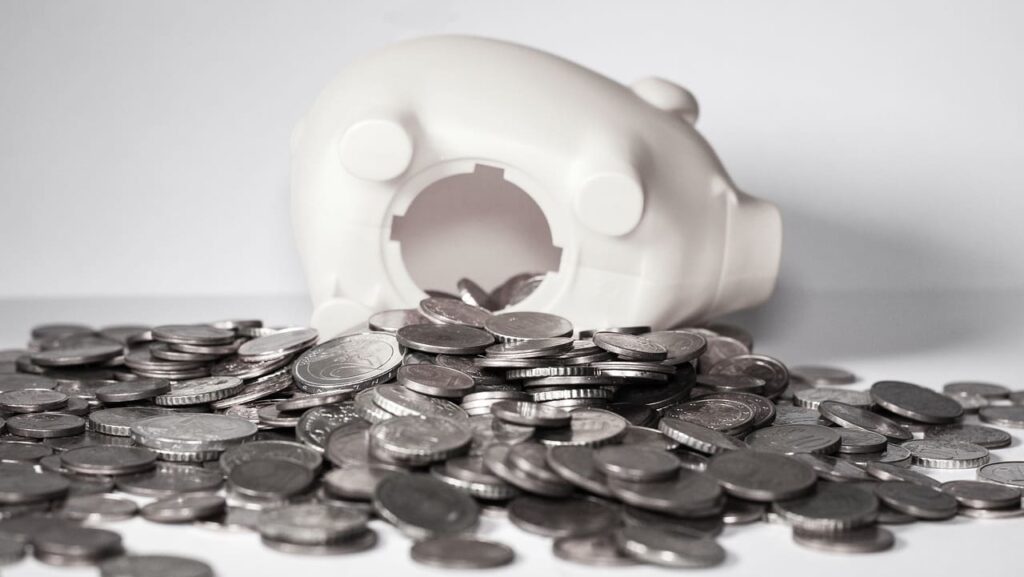
Photo: Kevin Schneider de Pixabay
In the battle for the parliamentary elections, economic programmes play a central role. Scrutinised down to the smallest detail, they are exploited by the media and by Emmanuel Macron’s supporters to discredit the two camps tipped as favourites in the election: on the Left, the Nouveau Front Populaire (New Popular Front, or NFP), and on the Right, the Rassemblement National (RN) and its allies. Economic analysts are clashing fiercely, with a good dose of bad faith, pointing fingers of danger where it is not warranted.
The Rassemblement National’s economic programme is one of the media’s favourite targets. For many years, the ruling elite has accused RN of amateurism in this area. They are quick to threaten economic collapse, should the RN come to power. Economists and academics have been appearing in the press to discredit measures deemed unworkable, unrealistic, or dangerous by committees of experts whose condemnations are primarily ideological. Protectionism is deemed dangerous, and the regulation of immigration-related spending unnecessary and insufficient. Some proposals are caricatured (“voting for the RN means cutting yourself off from the European Union”), or put forward when they have not been part of the RN programme for years—such as abandoning the euro. Some media outlets, such as Le Point, even call on the opinions of international economists to legitimate their attacks against the RN.
However, since June 9th, the RN has toned down its economic programme, under the influence of its alliance with Éric Ciotti’s Les Républicains. Some observers note an ongoing shift by the populist party towards liberal-conservatism, when it insists in particular on the need for fiscal responsibility and the problem of debt. The party’s idea of state control of the economy has been significantly scaled back, with the exception of the announced VAT cut on energy products. The arguments for the change are the need to compensate for the deeply deteriorated situation caused by Macron, and the inevitably limited room for manoeuvre that awaits a cohabitation government.
Arguments about RN’s amateurism no longer carry the weight they did yesterday. At issue is the record of Macron’s government, and the bragging of Economy Minister Bruno Le Maire, who boasted of being able to “bring the Russian economy to its knees” but had to concede an unprecedented deficit and an explosion in debt—the fruit of decades of costly policies by the French state, exacerbated by the choices made by the president and his teams. Those who once lectured have now seriously lost credibility.
Another weapon readily wielded against the RN in the media is the endorsement by a fringe group of left-wing economists of the NFP’s left-wing alliance programme despite the fact that a substantial number of political figures and economic players agree it is one of the most dangerous ever devised for a country of France’s economic level. The NFP’s economic programme is driven by some of the most enduring revolutionary utopias: freezing prices, taxing the rich (the programme envisages taxing 90% of the income bracket above €411,000), free public services at public expense, and so on. As economist Christian Gollier points out for Atlantico, “it’s all about doing whatever it takes to reduce inequality, without any consideration for our ability to produce the wealth we want to share.”
Some people don’t see it that way. By wrapping the reforms announced by the Left in flattering garments of “social justice” or “Keynesianism,” a clique of analysts is deploying mad energy to legitimise the unthinkable. The economist Thomas Piketty, often presented as one of the world’s leading experts on inequality, has come out clearly in favour of the New Popular Front, which he considers to be coherent and rational. He defends his point of view as follows: “There is a need for investment in health, education, research and infrastructure. These needs call for a major mobilisation of public resources. This means taxing the richest”—without questioning the perverse effects of the drastic tax measures advocated by the far Left.
In this sea of bad faith, a few voices sketch out a timid comparison. The NFP programme is said to be “much worse” than the RN programme. On June 20th, the president of MEDEF, the main French employers’ organisation, invited representatives of the main political groupings to present their political programmes. “The programme of the RN is dangerous for the French economy, growth, and employment, and that of the NFP is just as dangerous, if not more so,” the MEDEF chairman said at the end of the meeting.
But daring to make such an assertion can be dangerous. Those who dare, do so only half-heartedly, as they run the risk of being suspected of encouraging a vote in favour of the RN. But the birds of ill omen can continue to crow. The basic trend is that the voter motivated by the RN has long ceased to be convinced by media reasoning, whether about the economy or anything else. Their hearts are elsewhere, and so are their ballot papers.
